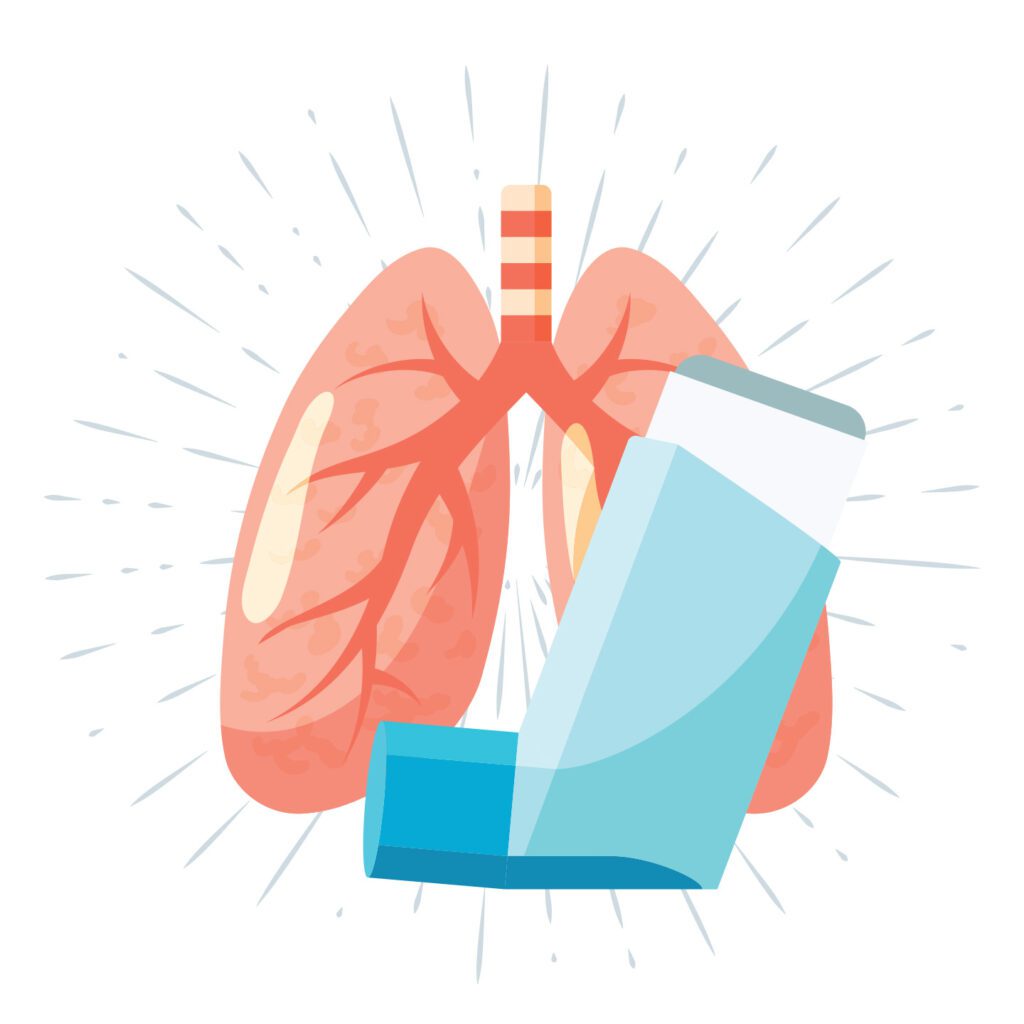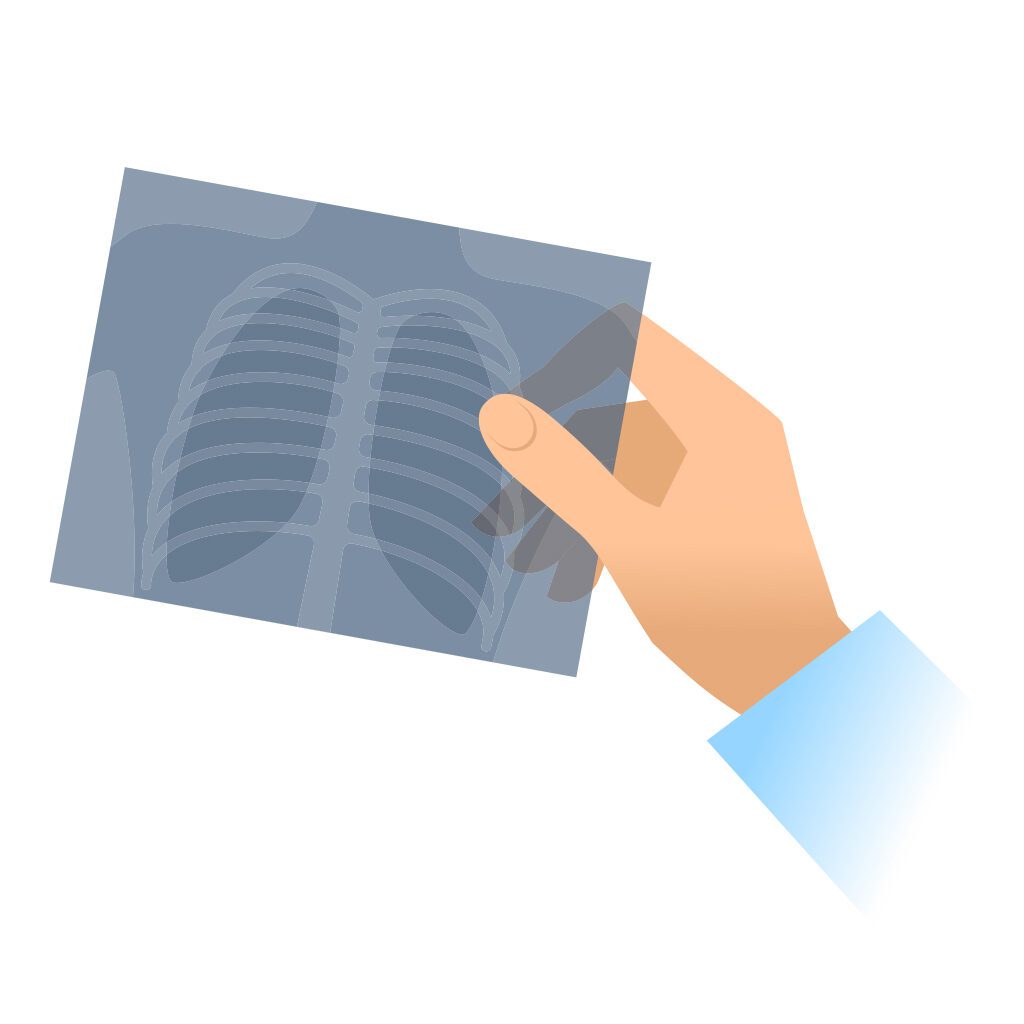Asthma is one of the most common long-term diseases among children in the United States, with symptoms ranging from wheezing and coughing to difficulty breathing. In many cases, these symptoms subside during the teenage years, but adult onset asthma is more common than many realize. Here, local experts share vital information about the disease and how it affects adults. Read on to learn how you can keep yourself and your loved ones breathing easy.
What is Adult Onset Asthma?
Asthma is chronic inflammation in the airways of the lungs that affects over 26 million Americans – both children and adults. It is divided into two categories: intermittent and persistent. If a person has intermittent asthma, their symptoms come and go, and they typically feel normal in between flares. Persistent asthma means the person feels symptoms frequently or most of the time. Asthma can also be classified by the cause of symptoms: allergic, meaning it is triggered by allergens such as dust, pollen, or pet dander; or non-allergic, meaning it is triggered by other factors like exercise, stress, or illness.
“Asthma can develop at any age, and the symptoms are strikingly similar in both children and adults,” says Dr. Lee M. Perry, an allergy and asthma specialist with Chattanooga Allergy Clinic. “The most common symptoms include shortness of breath, wheezing, chest tightness, and a cough that can occur at any time of the day, but is often noted to be worse at night.”

Additionally, Michele Pierce, a family nurse practitioner with The Allergy Asthma Group of Galen, says, “Signs and symptoms of asthma can vary from person to person. Some people may have asthma symptoms only with strenuous activity or exercise, while others may experience symptoms more frequently.”
What Causes Adult Onset Asthma?
There are several factors thought to play a role in adult onset asthma. Dr. Perry explains, “First, a family history of asthma and environmental allergies make asthma more likely. Second, if a patient has been diagnosed with eczema, their risk of asthma is increased. Finally, a history of seasonal or year-round allergy symptoms is a major risk factor.” Some additional risk factors are more prevalent among adults than children. According to Pierce, “Environmental factors, such as prolonged exposure to workplace irritants or cigarette smoking, can lead to inflammation of the airways and contribute to the development of asthma. Less commonly considered risk factors for developing asthma include obesity and hormonal changes that can trigger an asthma flare in pregnancy or menopause.”

“Less commonly considered risk factors for developing asthma include obesity and hormonal changes that can trigger an asthma flare in pregnancy or menopause.”
Michele Pierce
How Is Adult Onset Asthma Diagnosed?
Asthma is diagnosed the same way for both adults and children. “Anyone who regularly experiences a cough, shortness of breath, or wheezing should be evaluated by an allergy/asthma specialist, regardless of age,” says Dr. Perry. “If a patient has symptoms and a history consistent with asthma, a firm diagnosis is usually made with the help of lung function testing, or spirometry, which can be performed in-office and only takes a few minutes.”
Though clinical testing for adult onset asthma is relatively straightforward, the trouble is that, generally speaking, adults are more likely than children to have other conditions or diseases that can complicate diagnosis. “The symptoms of asthma can mimic those associated with other conditions such as COPD, heart disease, or anxiety. But asthma symptoms tend to be recurrent and will typically involve a specific trigger to cause the cough, wheeze, or shortness of breath,” Pierce explains. “It is important to discuss your symptoms with your healthcare provider in order to determine the appropriate testing and treatment.” Remember that while it may be normal to slow down a bit with age, symptoms like wheezing and difficulty breathing should not be written off as a normal part of aging.
Managing Adult Onset Asthma
Proper management of asthma is critical regardless of a person’s age. “Poorly controlled asthma can lead to unnecessary emergency room visits, hospitalizations, and potentially death. More commonly, asthma symptoms can prevent people from performing at their best, whether it be at work or at home,” Dr. Perry says. “Thankfully, there are excellent asthma treatments that can improve one’s quality of life significantly!” Treatments include:
Bronchodilators: These medications relax the muscles around airways so that air and mucus can pass through more easily, improving the ability to breathe. These are often taken at the onset of symptoms for quick relief.
Anti-inflammatories: These medications reduce swelling in the airways and limit the production of mucous. They are often prescribed for daily use to manage chronic asthma or prevent flares.
Biologic therapies: These medications are modified from the cells of another living organism to target specific molecules in humans. In cases of severe asthma, biologics can be used to target antibodies, inflammation, or certain cell receptors to control symptoms.
In addition to medications, certain lifestyle changes can improve outcomes for people with asthma. “Lifestyle changes can have a positive impact on someone trying to manage asthma. It is important to identify triggers that may contribute to asthma symptoms and try to avoid them,” Pierce advises. “Avoiding triggers can reduce the frequency and severity of asthma symptoms. Definitely quit smoking. Exercising regularly can help improve lung function and decrease stress. If allergies cause asthma symptoms, it is important to schedule an appointment with your allergist for specific testing to help identify the potential allergic triggers for asthma.”
While there is currently no cure for asthma, there are plenty of ways to manage symptoms so that you can get back to the things you enjoy. It is important to always be aware of any new or worsening symptoms, and speak to your doctor if you have any questions or concerns about your breathing – particularly if you have a personal or family history of asthma. Dr. Perry concludes, “I cannot stress enough the importance of accurately diagnosing asthma and allergies. Once the diagnosis is made, a treatment regimen can be started that can help you live your life to the fullest.”

Lee M. Perry, MD
Allergy and Asthma Specialist, Chattanooga Allergy Clinic

Michele Pierce, FNP-BC
Family Nurse Practitioner, The Allergy Asthma Group of Galen




